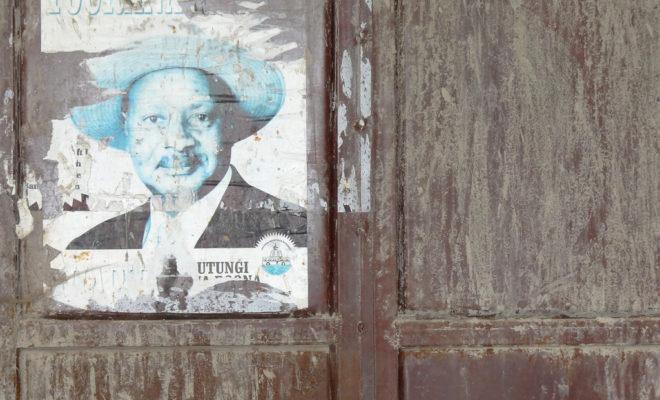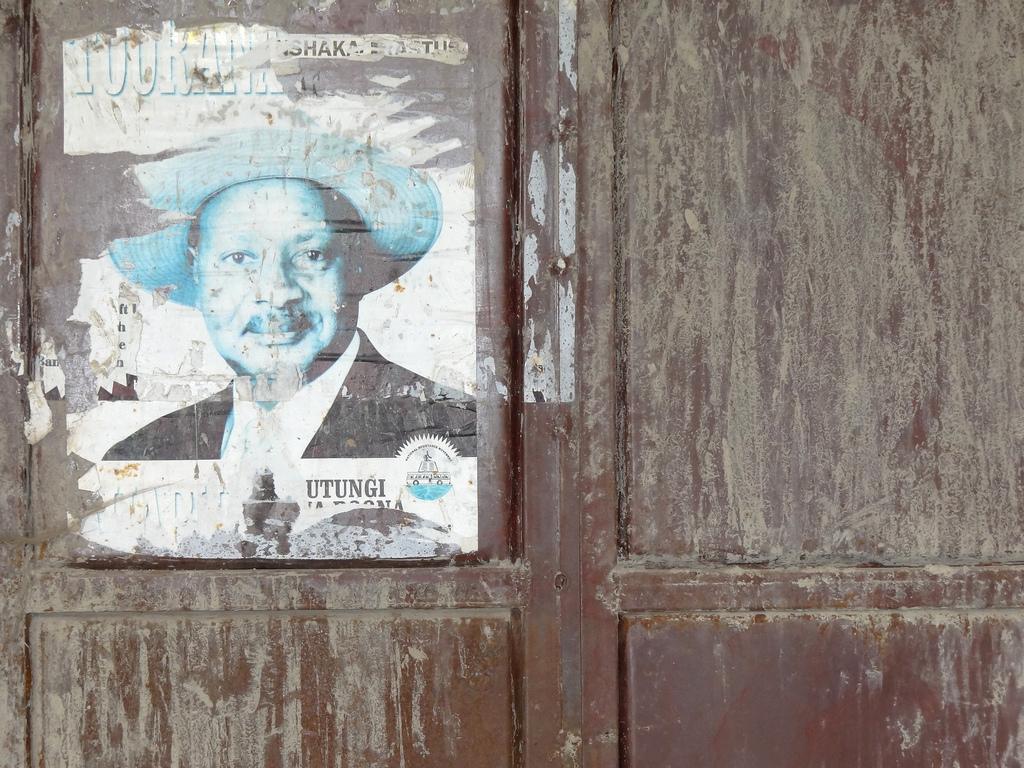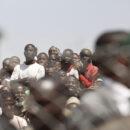Bit by bit, Uganda is laying the groundwork for future unrest

Economically and politically, the government’s actions are leading to growing frustrations and lawlessness.

President Yoweri Museveni has been in power since 1986. Credit: Adam Jones.
After 30 years of President Yoweri Museveni, Uganda’s system of government has shifted from broad-based and constitutional to one increasingly reliant on authoritarian power and patronage.
Although Museveni and the ruling National Resistance Movement (NRM) has won elections – most recently in 2016 – allegations of rigging and vote buying abound. The president’s popular support is waning, while the arrest of political opponents and activists has significantly undermined his international legitimacy.
As detailed in a recent International Crisis Group report, Uganda faces a growing crisis of governance on numerous fronts. Politically, economically and socially, the government’s actions could be laying the groundwork for future civil strife.
Staying in power
Museveni will likely run for re-election on 2021. But in order to do this, the 73-year-old president will have to modify the constitutional provision that bars presidential candidates older than 75. A proposal to make this change was introduced to parliament this October. It was put on hold following protests, but despite its unpopularity, it will likely be voted through eventually.
Museveni’s early years restored stability after years of civil war. But alongside his use of clientelism and political authoritarianism, he has buttressed his position by tightening control over key institutions, including the army and police. The president has centralised political power into his own hands and those of his family.
What an eventual transition might look like, or how it could come about, is yet to be determined. The opposition Forum for Democratic Change (FDC) looks too frayed by repression and its leaders’ rivalries to take the lead. Instead, the emergence of new political actors and youth protest movements may represent a greater challenge for the president. These include the reggae star turned MP Bobi Wine, who offers hope to those suffering from the inequities of Museveni’s era.
International partners and donors concerned about the country’s direction should encourage the government to return to the idea – discussed after the divisive 2016 election – of a credible National Dialogue that would enhance relations between the opposition and government, and ensure a peaceful transition to a post-Museveni era.
A daily struggle
For many Ugandans, however, a political transition is not the priority. They are more concerned with the daily struggle of poverty, unemployment, food shortages, the rising cost of living and lack of access to land or social services. Underdevelopment is widespread. Annual economic growth, which ranged between 6-10% during the boom years of 2000-2011, has fallen to an estimated 4.6% in 2017.
Sharp declines in the financial sector and in global demand for commodities, a lack of bureaucratic support, and continuing instability in neighbouring South Sudan give little hope for improvement.
Uganda’s youth suffer most from these conditions. This makes them more susceptible to political mobilisation or, in the worst cases, criminal recruitment. Programmes designed to improve livelihoods tend to be swallowed by the patronage system and function as little more than hand-outs in exchanges for political support.
Corruption in government has also affected the public sector, which delivers poor quality services, especially in health and education. Ugandans living in rural areas and surviving through subsistence agriculture are struggling with unpredictable weather patterns, environmental degradation, farm fragmentation and insufficient government support.
The army-led Operation Wealth Creation aimed to boost agricultural production but proved utterly inadequate, focusing on seed distribution instead of the main problem for farmers: the lack of fertilisers and irrigation.
Increasing lawlessness
Alongside political and economic uncertainty, a process of administrative decentralisation, which has doubled the number of districts between 2002 and 2017, has also bred identity politics and ethnic polarisation.
After 15 years with no local elections at village level, the government released a roadmap for new council elections for November 2017. However, they were postponed, apparently for fear elections would lead to a loss of strong local NRM representation.
Local security and crime has also increased due to the ineffectiveness and politicisation of the police force, which is relied upon by government to disrupt opposition activity. This is part of a wider structural problem, including the deterioration of local governance and the expansion of informal security networks. International and domestic human rights organisations have reported a range of violations by the police including arbitrary arrests, physical abuses and extortion.
Furthermore, a dysfunctional land ownership system has led to community-level violence and disputes. This is made worse by popular mistrust of police and politicians as well as ambiguities associated with customary ownership, corruption and land grabs.
As President Museveni manoeuvres to extend his 30-year rule, a wide range of political and administrative reforms are urgently needed to avoid unrest. Elections for local councillors should be held at the earliest possible date. The government should act to restore trust in institutions. Land ownership reforms should take place only after wide-ranging public consultation, while the creation of further administrative districts should be halted.
Despite its shrinking, the amount of political space may still be far above the levels reached during civil conflicts in the 1980s. However, pervasive corruption, polarised politics and authoritarian trends are setting the scene for future civil strife.







“Museveni’s early years restored stability after years of civil war”….Taylor what exactly do you mean here? Which early years brought sability? You mean stability to Lwero his former hideout or stability in Gulu and Kitgum the districts in northern uganda that suffered from war and children sleeping in camps for 20 year. you need to understand the real history to make accurate report